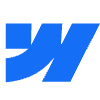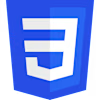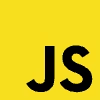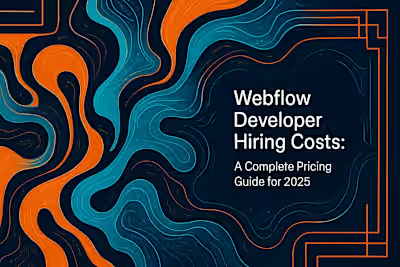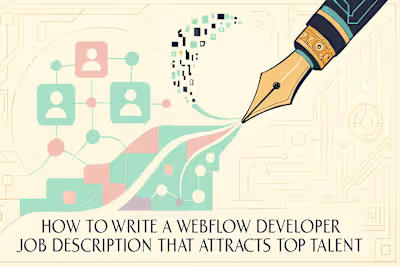Top Interview Questions for Webflow Developers (Technical & Behavioral) in 2025
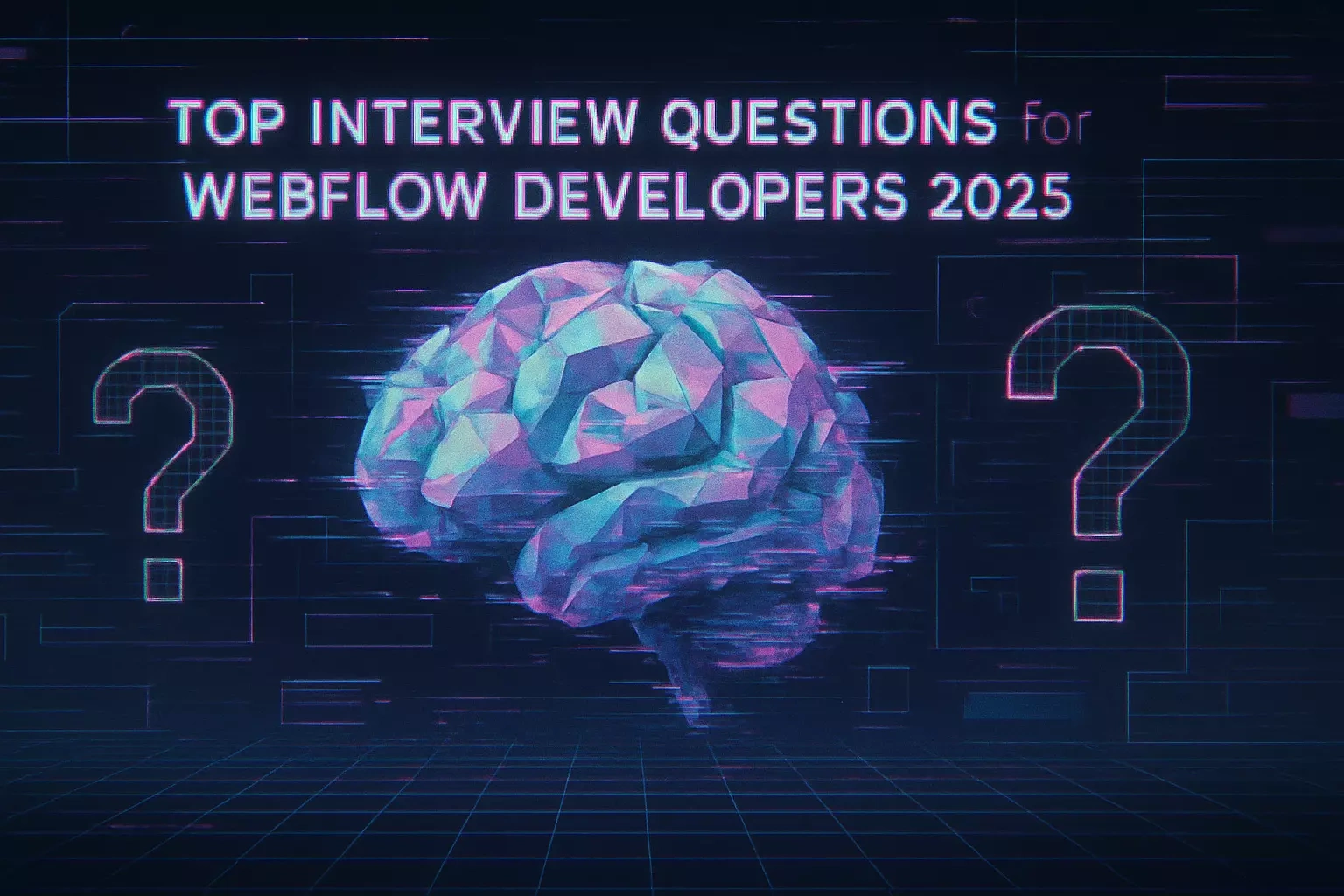
Top Interview Questions for Webflow Developers (Technical & Behavioral) in 2025
Preparing for the Interview: Setting the Stage
Defining Key Competencies to Assess
Structuring the Interview (e.g., intro, technical, behavioral, Q&A)
Technical Interview Questions for Webflow Developers
Webflow Platform Proficiency
HTML, CSS, and JavaScript Knowledge
Problem-Solving and Debugging
Integrations and Advanced Functionality
Behavioral Interview Questions for Webflow Developers
Collaboration and Teamwork
Communication Skills
Adaptability and Learning
Time Management and Organization
Questions to Ask About Their Portfolio
Deep Dive into Specific Projects
Candidate's Questions for You
What Their Questions Might Reveal
Evaluating Responses and Next Steps
Using a Scorecard or Rubric
Communicating with Candidates Post-Interview
References
Top Interview Questions for Webflow Developers (Technical & Behavioral) in 2025
Preparing for the Interview: Setting the Stage
Defining Key Competencies to Assess
Structuring the Interview (e.g., intro, technical, behavioral, Q&A)
Technical Interview Questions for Webflow Developers
Webflow Platform Proficiency
HTML, CSS, and JavaScript Knowledge
Problem-Solving and Debugging
Integrations and Advanced Functionality
Behavioral Interview Questions for Webflow Developers
Collaboration and Teamwork
Communication Skills
Adaptability and Learning
Time Management and Organization
Questions to Ask About Their Portfolio
Deep Dive into Specific Projects
Candidate's Questions for You
What Their Questions Might Reveal
Evaluating Responses and Next Steps
Using a Scorecard or Rubric
Communicating with Candidates Post-Interview
References
Posted Jun 12, 2025
Ace your Webflow developer interviews! Discover key technical and behavioral questions to ask, helping you assess skills, experience, and cultural fit.

